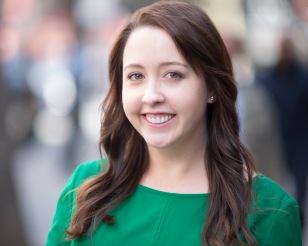by Jennifer Johnson-Blalock
So you’ve finished your manuscript—worked with critique partners and beta readers, put it in a drawer for a month or so, read it again, revised until your eyes bled a little—and you’re absolutely sure that your work is as polished as you can make it.
Now you’re ready to find an agent. There are more ways to do so than ever before, from traditional query letters to contests to Twitter pitching events. But if you want face-to-face feedback, conferences are a great option. As you prepare for the big event, here are a few things to keep in mind:
Choose the right conference for you.
Cost and location are two primary concerns, and if you’re a genre writer, that will guide your decision as well. But if you have options, consider what the conference offers in terms of agent interaction. I’ve been to conferences with three-minute pitch sessions and ones with twenty-minute critiques. Decide what would be the most helpful for you—would you rather meet with more agents or get more feedback?
Make the most of your conference.
There’s so much more to gain from the experience than agent interactions. Attend panels strategically—think about what you really need to work on when selecting, and take a few minutes after the session to decide how to implement what you learned.
Network with other writers! Conferences can be wonderful places to find a new critique partner or writers’ group or just get support from people in the trenches with you.
Pitching isn’t the only way to meet agents.
Maybe you don’t have the extra money for a pitch session. Maybe your book isn’t quite ready. If I’m at a conference, I expect writers will approach me, and assuming I’m not late for a session or on a frantic search for the restroom, I’m happy to say hello. Then you can open your query letter by reminding me about our interaction, and you’ll be off to a great start.
But if you’re pitching, be prepared.
- Tailor your pitch to the allotted time. In a three-minute session, you only have time for the elevator version—the punchiest two-sentence summary of what your book is about. If you have ten minutes, consider starting with the elevator pitch, then expanding.
- Tailor your pitch to the agent, if you can. If you’ve specifically chosen me, I love to hear why you think your book would be a good fit.
- Breathe. Not only is it necessary for your survival, it gives the agent room to ask questions.
- If you get a request, follow up as soon as possible after the conference in the requested manner. While I’m happy to take a look at requested work any time an author sends it, it’s disappointing when something I was excited to see doesn’t show up.
- If an agent passes, don’t despair. It’s subjective, and there are MANY more agents out there. But you may have as many as five minutes remaining in your pitch session—you can thank the agent politely and walk away, or you can make that time productive. Which brings me to . . .
Agents are there to help.
I won’t find a new client at every conference. The hope that I might is part of why I attend, but a bigger motivation is the desire to help writers. I know that you’re spending time and money on the event, and I want our meeting to be useful. So whether or not I request pages, I’m happy to answer any questions you have about the publishing process.
And while almost all agents avoid taking material home, I’m happy to give your query letter on-the-spot feedback if we have time. This isn’t true for every agent, but I know of a couple others who do this. If not, you might ask how your pitch could be improved.
I hope these tips help you have a productive, enjoyable conference experience. One final word of advice, though:
You don’t have to go to a conference.
While conferences can be enormously beneficial, they aren’t the only way to land an agent. I read and carefully consider every query, and we all regularly sign people from the so-called slush pile.
Whichever path you take, good luck on your journey to publication!
 Jennifer Johnson-Blalock joined Liza Dawson Associates as an associate agent in 2015, having previously interned at LDA in 2013 before working as an agent’s assistant at Trident Media Group. Jennifer graduated with honors from The University of Texas at Austin with a B.A. in English and earned a J.D. from Harvard Law School. Before interning at LDA, she practiced entertainment law and taught high school English and debate. Follow her on Twitter @JJohnsonBlalock, and visit her website: www.jjohnsonblalock.com.
Jennifer Johnson-Blalock joined Liza Dawson Associates as an associate agent in 2015, having previously interned at LDA in 2013 before working as an agent’s assistant at Trident Media Group. Jennifer graduated with honors from The University of Texas at Austin with a B.A. in English and earned a J.D. from Harvard Law School. Before interning at LDA, she practiced entertainment law and taught high school English and debate. Follow her on Twitter @JJohnsonBlalock, and visit her website: www.jjohnsonblalock.com.
Note from the editor: Check out some writing conferences here